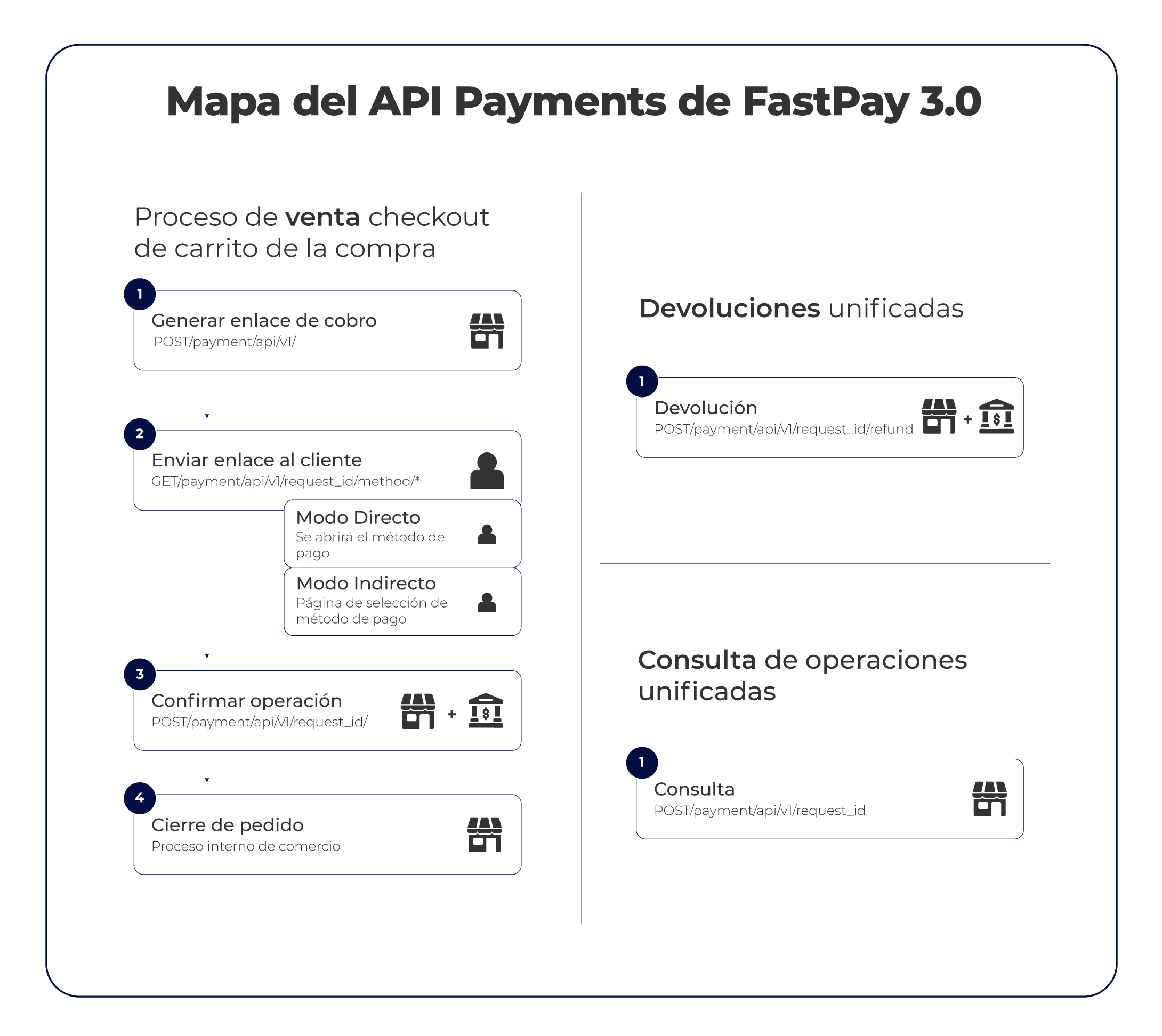/payment/api/v1
tip
Before continuing, you'll need to be familiar with the following sections:
The following map shows the available endpoints to implement the basic operational processes of a business.

All calls have a common input and output format. The request signature must be sent in the Content-Signature header.
Before defining the specific calls for the business operations, we include the "Common Elements" section to establish the foundation for all requests.
Common Elements
Input Format
All requests will have a common structure and specific parameters. The format is as follows:
Body
- key (string): Identifier of the requester.
- resource (string): Resource identifier.
- mode (enum[string]): Signature algorithm.
- sha256
- sha512
- nonce (string): Unique identifier for the request, used to control data duplication.
- payload (object): Contains the specific parameters for each request.
Headers
- Content-Signature: Contains the signature of the request body (Body) with the private key.
HMAC(body, secret, mode) - Content-Type: It is important to note that the API will only process requests with the content type
application/json.
Example
{
"key": "589365da65c48cff87d0874a",
"nonce": "1234567890",
"mode": "sha256",
"resource": "359ef8ce5c5f4003b71692e446908c27",
"payload": {
"param1": "value1",
"param2": "value2"
}
}
Output Format
All responses will have a common structure and specific parameters. The format is as follows:
Body
- type (string): Type of response:
- code (string): Identifier code of the result. It is a guiding code and is not strictly linked to the reason for the response, meaning that the code does not unequivocally identify the response.
- Code = 0 --> success
- Code > 0 --> warning
- Code < 0 --> error
- detail (string): Literal description of the response message.
- uuid (string): Unique identifier of the request, essential for traceability.
- request_id (string): Necessary for completing some operations. Those requiring it will be indicated.
- payload (object): Response parameters.
Headers
- Content-Signature: The signature of the response body with the secret key. HMAC(body, secret, mode).
Example
{
"type": "resource.status",
"code": "0",
"detail": "Successful payment request.",
"payload": {
"param1": "value1",
"param2": "value2"
},
"request_id": "6268ee6d5dff38d7bc33dd37",
"uuid": "6268ee6d5dff38d7bc33dd37"
}